
Can You Get a Disease from Oral Yahoo? Understanding Risks and Prevention
1. What is Oral Yahoo?
Oral yahoo, often referred to as oral contact or oral activities, is a term that encompasses various forms of intimate and social contact involving the mouth. This can include activities such as kissing, oral sex, and other forms of close, mouth-to-mouth interaction. While such activities are common in human relationships, many people wonder about the potential risks involved—specifically, whether diseases can be transmitted through these interactions.
The truth is that yes, certain diseases can be spread through oral contact, particularly if proper precautions aren’t taken. Understanding the risks associated with oral yahoo and how diseases spread is crucial for maintaining both your oral health and overall well-being. In this article, we will delve into the various diseases that can be transmitted through oral contact and how to reduce the risks involved.
2. Can Diseases Be Spread Through Oral Contact?
Oral contact can transmit various diseases, ranging from mild infections to more serious conditions. The key factor in disease transmission is the presence of bacteria, viruses, or fungi in the saliva or other fluids exchanged during these activities. Let’s explore some common diseases that can be transmitted through oral yahoo.
2.1 Bacterial Infections
One of the most common types of infections spread through oral contact is bacterial infections. Some examples of bacterial diseases that can be transmitted through kissing or other forms of oral contact include:
- Strep Throat: Caused by the Streptococcus bacteria, strep throat can be spread through saliva. Sharing drinks, kissing, or even being in close contact with an infected person can lead to transmission.
- Gum Disease (Gingivitis and Periodontitis): Gum disease is caused by bacteria in the mouth. If you engage in oral activities with someone who has gum disease, the bacteria can spread, potentially leading to infections in the recipient's mouth.
- Tooth Decay: Cavities are caused by harmful bacteria in the mouth that can be transferred through saliva. While tooth decay itself isn’t typically directly transmitted, the bacteria responsible for it can be passed between individuals through oral contact.
2.2 Viral Infections
Viral infections are another significant risk when it comes to oral yahoo. These viruses can spread easily through saliva and other bodily fluids, making oral contact a common route of transmission. Some viral infections to be aware of include:
- Herpes Simplex Virus (HSV): HSV, which causes cold sores (oral herpes), is highly contagious. Kissing or any oral sexual activity with an infected person can lead to transmission. It is important to avoid oral contact with someone who has visible cold sores.
- Human Papillomavirus (HPV): HPV is the most common sexually transmitted infection (STI) in the United States. It can be transmitted through oral sex and is known to increase the risk of oral cancers, particularly throat cancer.
- HIV: Although the risk of transmitting HIV through kissing is very low, it is still possible, especially if there are open sores or cuts in the mouth. HIV is more commonly transmitted through unprotected oral sex, where bodily fluids may be exchanged.
2.3 Fungal Infections
Fungal infections, such as oral thrush, are another risk associated with oral contact. Oral thrush is caused by an overgrowth of Candida, a type of yeast. It is more common in individuals with weakened immune systems, such as those with diabetes or HIV, but it can also spread through oral activities. Those with dentures or who take antibiotics are also at higher risk of developing oral thrush.
3. How to Protect Yourself from Diseases Caused by Oral Yahoo
While the risks of disease transmission through oral contact are real, there are steps you can take to protect yourself and your partner(s) from infection. Here are some key strategies to minimize the risks:
3.1 Maintain Good Oral Hygiene
One of the most effective ways to reduce the risk of transmitting or contracting oral infections is by maintaining good oral hygiene. Brushing your teeth twice a day, flossing, and using mouthwash can help remove bacteria, viruses, and other harmful substances from your mouth. Keeping your mouth clean reduces the likelihood of infection and disease transmission.
3.2 Avoid Oral Contact with Visible Infections
If you or your partner have any visible sores, such as cold sores, or symptoms of a bacterial infection, it’s important to avoid oral contact until the condition is healed. Avoid kissing or performing oral sex if you or your partner have active infections, as these can be transmitted easily through direct contact with infected areas.
3.3 Use Protection During Oral Sex
Using a dental dam or condom during oral sex is an effective way to protect against the transmission of STIs, including HPV and HIV. While these methods may not eliminate the risk entirely, they significantly reduce the likelihood of disease transmission.
3.4 Get Vaccinated
Vaccines are available to help protect against certain viruses that can be transmitted through oral contact. For example, the HPV vaccine can protect against the strains of HPV that cause oral and throat cancers. Getting vaccinated can provide an added layer of protection for your oral health.
3.5 Regular Dental Checkups
Regular dental visits are essential for maintaining good oral health and catching any signs of infections or diseases early on. Dentists can identify potential issues, such as gum disease or oral infections, and provide treatment before they become more serious.
4. Real-Life Story: The Importance of Protection and Awareness
Consider the case of Jake, a 32-year-old man who started noticing discomfort in his mouth and a strange taste in his mouth after kissing his partner. Jake had never experienced issues with oral health before, but after a week of persistent symptoms, he decided to visit his dentist. Upon examination, the dentist discovered Jake had contracted oral herpes from a previous kiss. Fortunately, Jake was able to manage the outbreak with antiviral treatment, but the experience was a reminder of how important it is to protect yourself during oral activities.
Jake learned the hard way that while the risks of disease transmission through oral contact are real, taking preventive measures like maintaining oral hygiene and avoiding kissing when symptoms are present can help reduce the risks.
5. Why Choose Family Dentistry Online for Your Oral Health Care
At Family Dentistry Online, we offer comprehensive oral health services designed to help you maintain a healthy mouth and prevent the transmission of oral diseases. Whether you’re looking for advice on preventing oral infections or need treatment for an existing condition, our expert team is here to help. Visit our website today to learn more about our services and book an appointment with one of our experienced dental professionals.

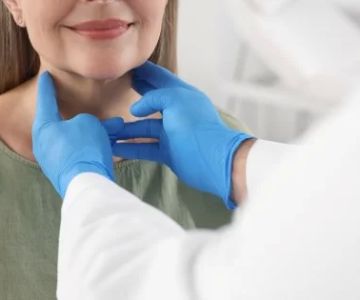

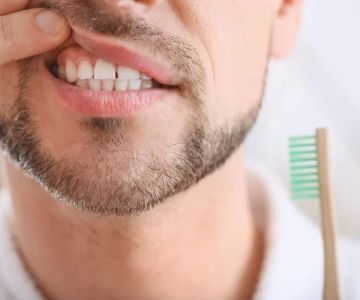
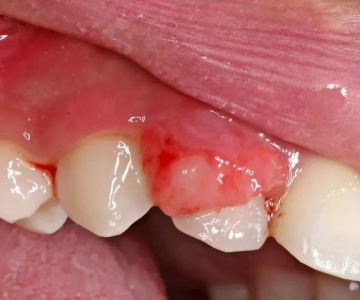
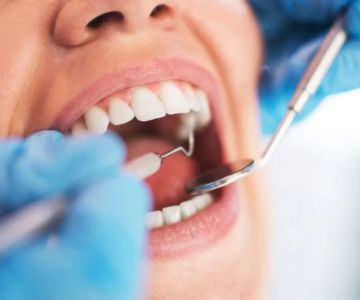
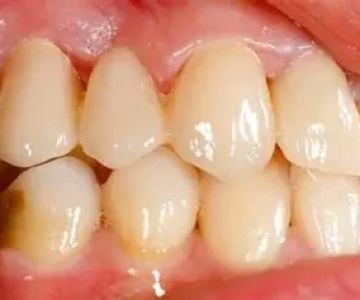
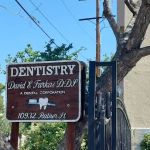 Parsa Dental - Sun Valley4.0 (50 review)
Parsa Dental - Sun Valley4.0 (50 review) Plymouth Smiles Family Dental4.0 (26 review)
Plymouth Smiles Family Dental4.0 (26 review) Aspen Dental - Merrillville, IN4.0 (754 review)
Aspen Dental - Merrillville, IN4.0 (754 review) Worcester Dental Arts5.0 (579 review)
Worcester Dental Arts5.0 (579 review) Jared Berger DMD3.0 (4 review)
Jared Berger DMD3.0 (4 review) SHN Orthodontics5.0 (301 review)
SHN Orthodontics5.0 (301 review) The Importance of Oral Health Education During Pregnancy for a Healthy Pregnancy
The Importance of Oral Health Education During Pregnancy for a Healthy Pregnancy Best Tips for Brushing Your Teeth Properly for Healthy Gums: Essential Techniques for Oral Health
Best Tips for Brushing Your Teeth Properly for Healthy Gums: Essential Techniques for Oral Health Why Skipping Dental Checkups Can Lead to Bigger Oral Health Problems
Why Skipping Dental Checkups Can Lead to Bigger Oral Health Problems Advantages of Porcelain Dental Restorations
Advantages of Porcelain Dental Restorations How Can Diabetes Cause Tooth and Gum Problems? Preventing and Managing Oral Health Issues
How Can Diabetes Cause Tooth and Gum Problems? Preventing and Managing Oral Health Issues Healthy Habits for Promoting Good Oral Health and Hygiene: Tips for a Healthy Smile
Healthy Habits for Promoting Good Oral Health and Hygiene: Tips for a Healthy Smile